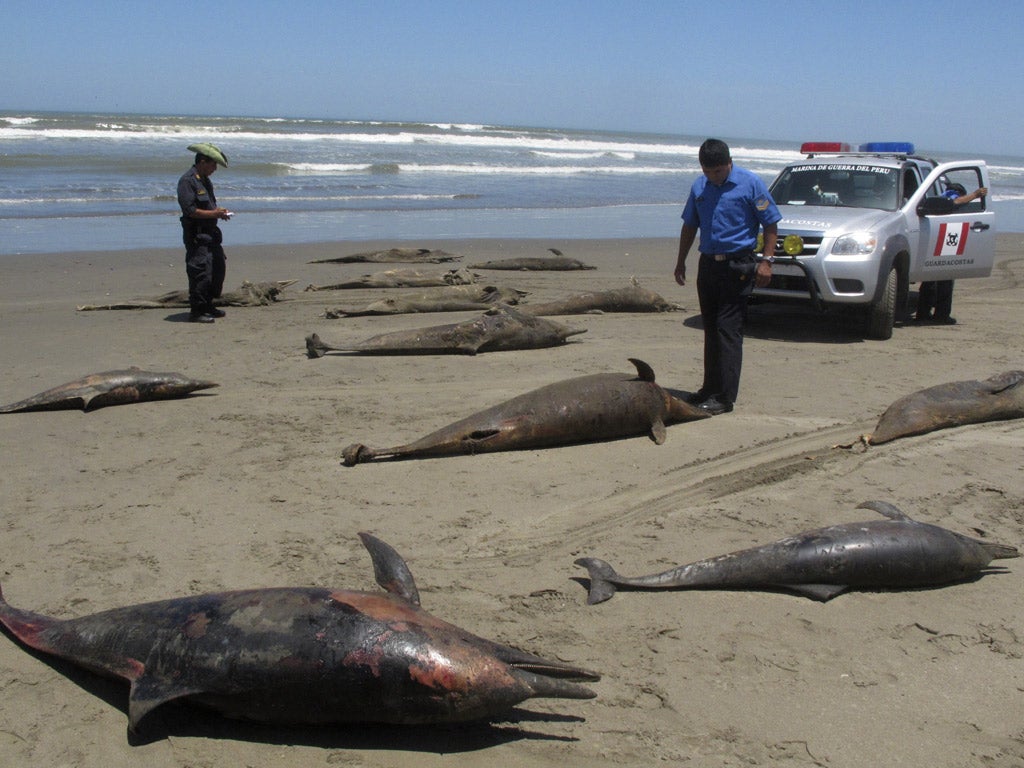Mystery of mass dolphin deaths in Peru

Maritime scientists in Peru are trying to solve a mystery that has turned stretches of the country's beaches into a grim dolphin morgue.
Officials in Lima said last week that 877 carcasses have washed up, an unprecedented number, along 100 miles of the Piura and Lambayeque coast. Nearly all are bottle-nosed dolphins, many in an advanced state of decomposition.
A possible explanation for the mass fatalities is underwater sound waves set off by explosions during oil exploration. But Peru's Deputy Environment Minister, Gabriel Quijandria, said he thought a powerful virus was the more likely cause. "So far, it's the most probable hypothesis, and it isn't the first time it's happened. There have been cases in Peru, in Mexico, the United States," he said. More should be known by the end of this week, when it is hoped the first results of testing on the remains will be released.
Suggestions that seismic shock waves are responsible will sound alarm bells among environmentalists. Last week, Carlos Yaipen-Llanos, who leads Orca, the international animal welfare organisation that focuses on whales and dolphins, said that some of the dolphins have broken bones in their ears and collapsed organs, which would be consistent with sound-wave damage.
Exploration in the area has been carried by a Houston-based oil company, BPZ, which uses underwater explosions to test for evidence of oil reserves. Mr Yaipen-Llanos says that some of the dolphins had bubbles and blood in their sinuses, which could indicate rapid ascent in panic, resulting in the bends.
However, Mr Quijandria noted that the carcasses began washing up in January, before recent rounds of seismic tests.
Join our commenting forum
Join thought-provoking conversations, follow other Independent readers and see their replies
Comments
Bookmark popover
Removed from bookmarks